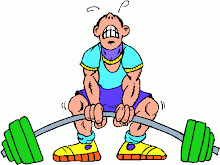
Do you want to wake up tomorrow weighing less and wearing a smaller size? Perhaps rapid weight loss diet. is a way to turn your dream into a reality. Many people, especially those in the medical community, will tell you that rapid weight loss through starvation and fad dieting is dangerous. However, when undertaken with the right attitude and a solid extended weight loss maintenance plan, a rapid weight loss diet can be a healthy and helpful way to start your way to a lesser weight.
There are two types of effective rapid weight loss diets, which if embarked with a mindset that is focused on safety and health, can definitely work wonders as you commence the journey toward your targeted weight. The first is routinely called a “starvation” diet, though carried out safely is called fasting, and the second is referred to as a very low-calorie diet.
Looking at the so-called starvation diet or fasting, most medical professionals warn against attempting this method especially for teenage girls. Some of the warnings are very valid including the dangers of trying an extended starvation diet, which can develop into the deadly illness anorexia nervosa. However, humans have been known to survive without food for up to 60 days in very extreme situations, so going without food for 2 to 3 days to kick start a diet plan will not cause harm assuming you do not suffer from serious medical conditions such as diabetes or heart disease, most especially if you are pregnant. In fact, fasting has been an important part of many religions for many millennia. The key is to remain hydrated drinking a minimum of 64 ounces of water per day, and having a plan to reintegrate small amounts of healthy foods into your diet.
The second rapid weight loss diet. is called a very low-calorie diet (VLCD). You can begin this diet plan after fasting or just begin this on day one of your new healthier lifestyle. This is the type of program that gastric bypass patients follow after surgery and can lead to significant weight loss within a 12-week period. However, same with fasting, a reintegration plan is a necessity. While you are undertaking a VLCD, you should include 70-100 grams of protein per day, take a multivitamin, and eat foods rich in potassium like bananas and tomatoes.
Additionally, you should inform your doctor before beginning any diet plan. If you experience extreme prolonged hunger, fatigue, irritability or fainting, promptly seek medical advice.
This is a must have for dieting and muscle building

